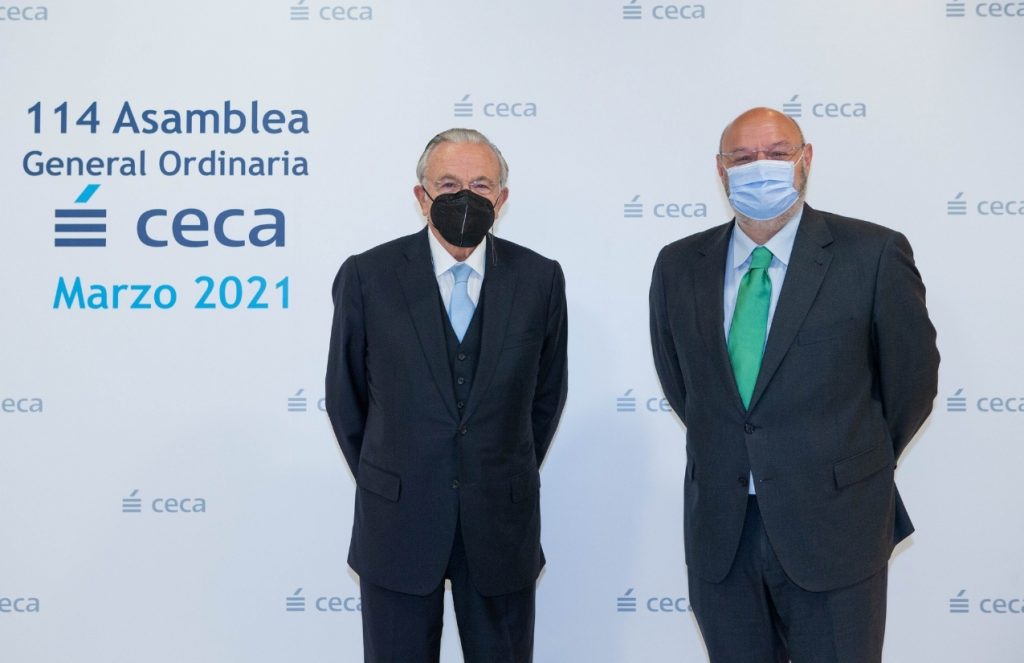The 114th CECA General Assembly was held today, chaired by Isidro Fainé
Investment in Obra Social by CECA's member entities totalled €772 million in 2020
In 2020, a year marked by the health crisis, the CECA sector posted net attributable profit of €2,155 million
The emergence of COVID-19 has highlighted the commitment to service of credit institutions in the search for solutions and their eagerness to collaborate with public institutions to overcome the impact of the coronavirus crisis. Measures such as legal and sector-specific moratoria, the advance payment of unemployment benefits and pensions or the "ICO lines" show the importance of defining public-private cooperation frameworks for the recovery of economic and social well-being.
Isidro Fainé, President of CECA, stressed at the 114th General Assembly of CECA that "the banking system is undoubtedly called upon to play a key role in the recovery for several reasons: the high level of knowledge of the productive fabric, thanks to its proximity to customers (particularly SMEs) and its extensive reach throughout the country; experience in risk analysis and risk management; and the possibilities offered by co-financing, which can help to increase the reach of the measures promoted by the government."
This public-private partnership should also be extended to the social sphere in which CECA member entities and their foundations are particularly active. Accordingly, the President of CECA stated that "the traditional public-private partnership is increasingly opening up to areas of cooperation with third sector entities which have a multiplier effect on our activity, in defence of the most disadvantaged and with the aim of reducing the economic and social gap."
In fact, the main private social investment in Spain stems from the Obra Social of CECA's member entities, which totalled €772 million in 2020, enabling critical projects to be maintained despite the crisis caused by the pandemic.
Among the areas in which the most noteworthy actions have been implemented are the fight against child poverty; promoting local development and job creation; supporting groups with special needs or at risk of exclusion; specialised care for our elderly; education and research.
The Assembly also stressed that, in this atypical year, the sector has shown great flexibility, adapting the Obra Social, cultural, research and financial education programmes to the actual needs demanded by citizens at the time, thus strengthening its commitment to society.
The CECA sector posted a profit of €2,155 million in 2020
In a year marred by the health crisis, with a sharp deterioration in economic activity, high market volatility and interest rates at record lows, CECA's member entities have posted an overall attributable profit of €2,155 million in 2020, a drop of 37.1% compared to the previous financial year. This fall in profits is largely explained by the sharp increase in provisions made to anticipate the impact of the crisis on portfolios.
Meanwhile, operating profit increased by 20% thanks to a slight improvement in gross income, driven by higher fee income and operating revenues, and lower operating expenses. All this has allowed the efficiency of the CECA sector to improve by almost 7 percentage points.









